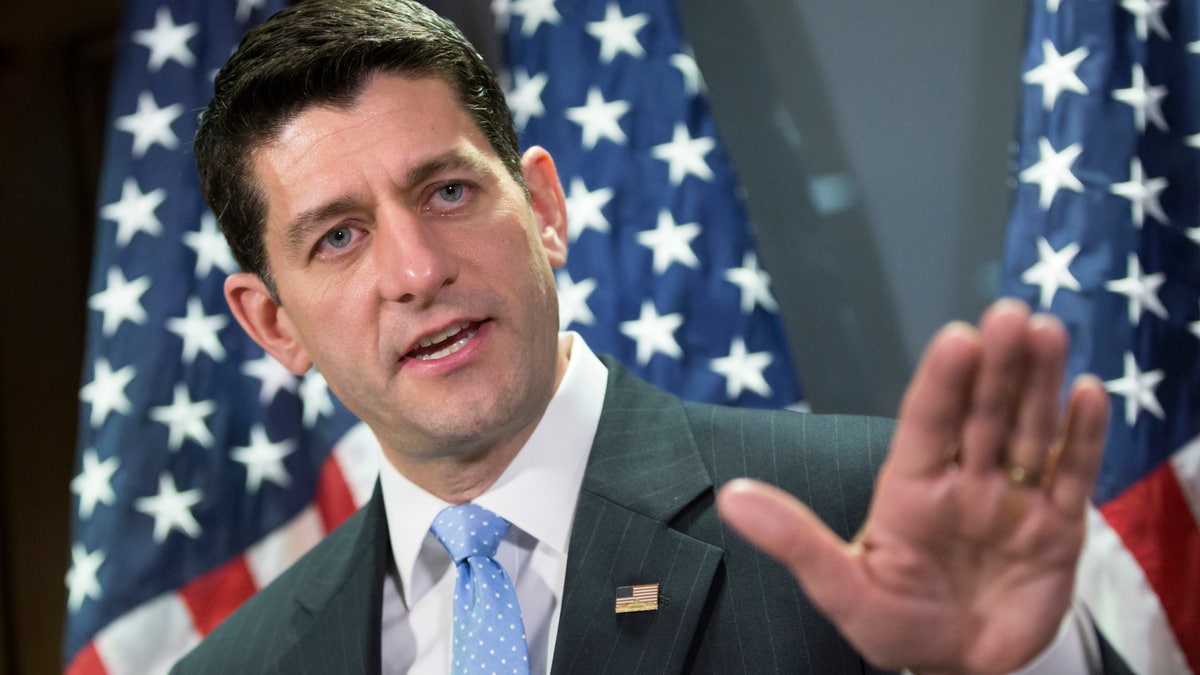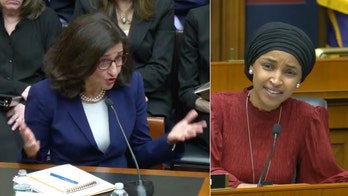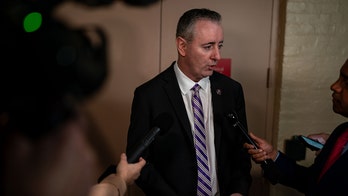
Feb 2., 2015: House Speaker Paul Ryan of Wis. takes questions from reporters at the Republican National Committee headquarters in Washington. (AP)
WASHINGTON – Searching for potential compromise, President Barack Obama brought the Republicans who run the House and Senate to the White House on Tuesday to try to hash out an agenda for his final year, even as his top legislative priorities appear to be losing steam.
Obama's meeting with House Speaker Paul Ryan was his first since the Wisconsin Republican took the helm more than three months ago, the long delay illustrating the lack of urgency for Obama in engaging with a Congress clearly resolved to wait him out. Obama and Ryan planned a private lunch following a joint meeting with Senate Majority Leader Mitch McConnell, whose focus this year is largely on protecting vulnerable Republicans and keeping the Senate in GOP hands come November.
Ahead of the meeting, Ryan told reporters that he was excited to see the start of voting in Iowa's presidential caucuses Monday night because "what it tells me is the days of Barack Obama's presidency are numbered."
White House spokesman Josh Earnest, trying to frame such a comment in a positive light, said that if the fact that Obama only has year in office left makes it easier for Republicans to work with him, "then maybe we should hold the Iowa caucus every day."
As Ryan swept into the speakership in October, the White House was cautiously optimistic that the policy-minded Republican, given a powerful mandate by his unruly caucus, might be able to work with Obama in 2016 on a narrow set of issues with some bipartisan overlap. Although Obama has scaled back his legislative ambitions from the sweeping proposals he pushed earlier in his presidency, he still needs Congress to help finish what he's started in certain areas -- trade being chief among them.
But with campaign season in full bloom, enticing Republicans to work with Obama on much of anything is becoming an increasingly arduous task, especially as many lawmakers facing competitive primaries seek to avoid votes that conservative challengers could use against them. Just as Ryan and McConnell were heading to the White House, the Republicans and Democrats running to replace Obama were shuttling from Iowa to New Hampshire for the next step in a presidential primary that's now the dominant force in the political conversation.
Ryan, speaking after the weekly GOP caucus, said he and Obama get along personally, but have their policy differences. He said he hoped they could "put those disagreements in check and see where the common ground is."
Earnest said the president spent time during the meeting laying out five areas where he's hopeful the White House can work with the GOP-controlled Congress this year, including Puerto Rico's financial crisis, the Trans-Pacific free-trade deal, fighting opioid abuse, pursuing cures for cancer and criminal justice reform. Earnest said those topics are being brought up by GOP presidential candidates on the campaign trail, so they should be areas for bipartisan cooperation.
Heading into Obama's final year, perhaps no issue seemed riper for compromise than a criminal justice overhaul that both parties agree is sorely needed. In an early sign of progress, a Senate panel approved legislation easing strict sentencing requirements for some nonviolent offenders.
But McConnell has been moving cautiously without committing to a vote while the bill's GOP backers downplay prospects for a breakthrough this year. Ryan's deputy, House Majority Leader Kevin McCarthy, on Monday became the latest Republican to warn that it might need to wait until next year, when Obama steps aside.
Obama is seeking final congressional approval for the sweeping free-trade deal with Asia, which most Republicans support and most Democrats oppose. To Obama's dismay, many GOP leaders have suggested they might not vote until after November's election, leaving the fate of a major pillar in Obama's economic legacy to the unpredictable lame-duck period.
Republican leadership aides listed a number of other likely topics, including North Korea sanctions, energy legislation, Vice President Joe Biden's cancer initiative and the Guantanamo Bay prison that Obama has been trying to close over GOP opposition. Obama's call for a new war authorization was another focus, though Republicans and Obama disagree sharply about what limitations should be included, dimming prospects for a bill this year.
In a sign of GOP eagerness to move past Obama, Ryan will return from lunch Obama for a House vote on overriding Obama's veto of a bill gutting his signature health care law.




